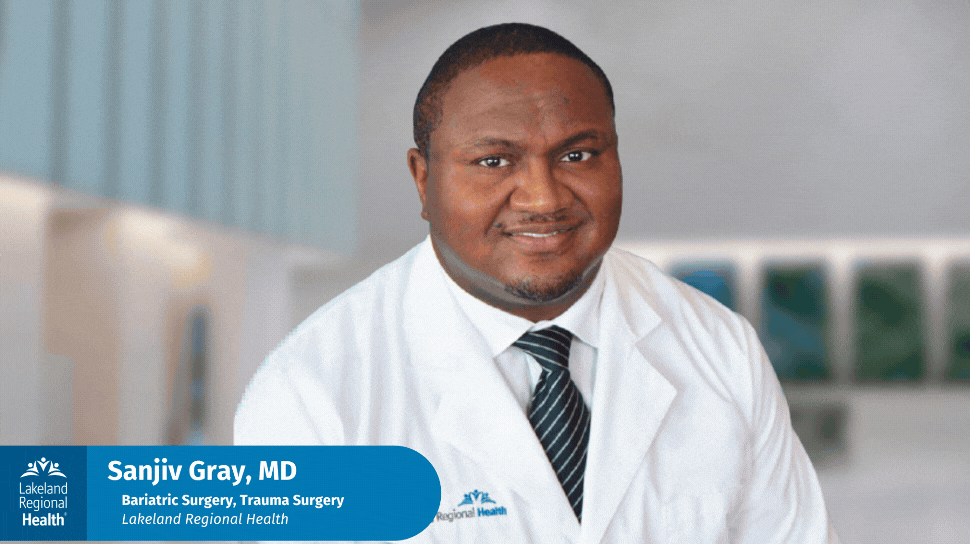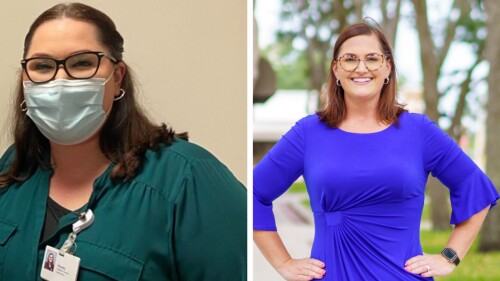From screenings to survivorship, Lakeland Regional Health’s Hollis Cancer Center offers expert cancer care close to home.
Maintaining preventative care appointments and scheduled screenings are key to early cancer detection and optimal health.
“One of the key things that we need to do is make sure that people have their primary care provider because, unfortunately, these are not things that you’re just going to be able and walk in and request,” says Dr. Alexa von Lindeman, medical director of primary care ambulatory.
To help keep you on track, the experts at Lakeland Regional Health are outlining the necessary screenings for each age range.
All ages
- Schedule annual check-ups with a primary care provider (read: the best form of preventative care).
- Get your yearly immunizations, like the flu vaccine during peak flu season (Oct.-May).
- Discuss any changes in your overall health with your provider.
- Keep an eye on all moles and freckles, especially living in a sunny, hot climate — if any moles grow or change in size, it may be time to connect with a dermatologist.

Should you need more advanced care, the experts at Hollis Cancer Center can provide everything you need in one state-of-the-art facility as seen above in their chemotherapy suite.
Video provided by Lakeland Regional Health
Cancer screenings in your 20s
- Cervical cancer screenings: Providers typically recommend pap smears for women starting at 21 years old and through adulthood.
- Clinical breast exams or clinical testicular exams: These are done by your provider during your annual check-up.
“Testicular cancer is a rare cancer in young men affecting one in 40,000, most commonly between 18 and 35, presenting as a painless testicular mass,” says Dr. Graham Greene, executive director of the Hollis Cancer Center and a urologic oncologist. “Encouraging and teaching regular self-examination helps detect and treat the most curable cancer in men.”
In addition to the above screenings, below are recommended screenings to begin in your 40s and beyond.
Cancer screenings in your 40s
- Yearly mammograms: This preventative breast cancer screening is recommended every year starting at the age of 40 (depending on risk) and continues through adulthood.
- Regular colonoscopies: For both men and women, this should begin at age 45.
“Colonoscopy is the gold standard for detection and prevention of colon cancer. The timing of screening is dependent on the patient’s individual risk factors,” says Dr. Sowsan Rasheid, colorectal surgeon at LRH. “The American Cancer Society recommends that colorectal cancer screening is started at the age of 45 years for average risk patients.”
Plus, here are 10 things a colorectal surgeon wants you to know.
Cancer screenings in your 50s and beyond
Always check with your provider and discuss your family history. This will help determine your risk and when screenings should begin, as they vary based on risk factors.
- Lung cancer screenings: Adults with a history of smoking should discuss regular lung cancer testing with their provider.
“Here in Florida, lung cancer is the number one cause of cancer death. I don’t think people think about it, unfortunately,” says Dr. von Lindeman.
- Beginning at 55, you may benefit from regular prostate-specific antigen (PSA) blood testing for prostate cancer.
“Beginning at age 55, certain men may benefit from a PSA (prostate-specific antigen) evaluation,” says Dr. Peter Hinds, urologic oncologist at LRH. “This blood test can lead to the early detection of prostate cancer, especially for men with a family history or a genetic or racial predisposition to prostate cancer.”
- If you are at risk for osteoporosis or bone cancer, you want to begin bone density screenings.

































